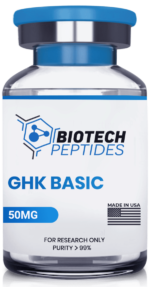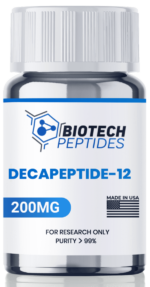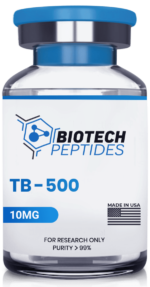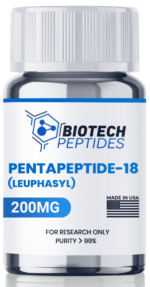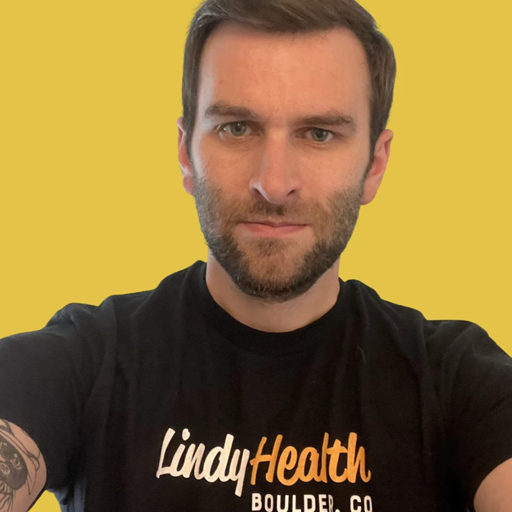Thinning hair and hair loss got you feeling down? Tired of seeing more hair in your shower drain than on your head? It’s time to bring in the big guns – the best peptides for hair growth!
Peptides are short chains of amino acids that stimulate collagen and elastin production in the scalp, leading to thicker, healthier hair growth. With the best peptides for hair growth, you’ll have luscious locks that will make heads turn. Say goodbye to bad hair days and hello to your best hair yet!
Key Takeaways
- GHK-Cu and Palmitoyl Tetrapeptide-7 are two of the best peptides for hair growth.
- Peptides such as Decapeptide-12 stimulate hair follicle growth by increasing the production of insulin-like growth factor-1 (IGF-1).
- Always look for products with high quality peptides and use clinically tested products for effective results.
What makes GHK-Cu The Best Peptide for Hair Growth?
While there are many peptides on the market that claim to stimulate hair growth, one that stands out above the rest is GHK-Cu.
One of the popular copper peptides and a combination of three amino acids: glycine, histidine, and lysine, and copper ions, GHK-Cu is thought to stimulate the production of collagen, elastin, and glycosaminoglycans in the scalp, which can lead to thicker, stronger hair growth. Not only that, but GHK-Cu has been shown to have antioxidant and anti inflammatory properties, making it an excellent choice for those with sensitive or damaged scalps [1].
While other peptides can also be effective for hair growth, GHK-Cu is considered by many to be the best peptide for achieving healthy, luscious locks.
GHK Basic (Tripeptide-1)
Tripeptide-1 is a synthetic peptide that is believed to promote hair growth by stimulating the production of collagen and improving blood flow to the hair follicles.
Tripeptide-1 binds to specific receptors on the surface of skin cells, which triggers a series of cellular signaling pathways that ultimately lead to the production of collagen. This can help improve the thickness of hair and promote healthy hair growth cycle.
Copper Peptides
Copper Peptides are the unsung hero of health – for the entire body. They can improve cardiovascular health as well as skin health. This is why GHK-Cu is used in anti-aging, anti-wrinkle, after-sun, skin renewal, skin moisturizer, and hair growth-stimulating products.
GHK can stimulate the production of collagen as well as decorin, which makes skin thicker, healthier, and far less likely to pick up blemishes or wrinkles.
GHK could also improve your hair health.
Palmitoyl Tetrapeptide-7
Palmitoyl Tetrapeptide-7 is a synthetic peptide that has been studied for its potential to promote hair growth. This peptide works by reducing inflammation in the scalp, which can contribute to hair loss. By reducing inflammation, Palmitoyl Tetrapeptide-7 may help to support healthy hair growth.
It leads to suppression of pro-inflammatory cytokines, which are molecules that can contribute to inflammation and damage in the scalp. By reducing inflammation, Palmitoyl Tetrapeptide-7 may help to improve blood flow and nutrient delivery to the hair follicles, promoting hair growth [2].
Palmitoyl Tetrapeptide-7
Palmitoyl tetrapeptide-7 is a synthetic peptide composed of the amino acids glutamine, glycine, arginine, and proline.
Palmitoyl Tetrapeptide-7 was originally developed to improve skin tissue as well as nervous tissue. It might even reduce the damage done to the skin by daily living.
Overall, Peptide users have found that Palmitoyl Tetrapeptide-7 reported the appearance of fine lines and wrinkles improved.
Decapeptide-12
Decapeptide-12 is a synthetic peptide that is commonly used in skincare products for its potential to brighten and even out skin tone. However, there is limited research to suggest that it may also have benefits for hair growth.
The peptide stimulates hair follicle growth through the activation of insulin-like growth factor-1 (IGF-1), a hormone that plays a key role in cell growth and proliferation. IGF-1 is known to promote the growth and development of hair follicles, and some studies have suggested that decapeptide-12 may increase the production of IGF-1 in the scalp [3].
Decapeptide-12
There is a direct link between the IGF-1 receptor and hair growth. As we age we see a reduction in IGF-1 levels which can lead to hair loss or even poor hair growth.
Decapeptide-12 is known to act on the IGF-1 receptor which could promote hair growth and the development of new hair follicles.
That said, more research is needed on the topic. Decapeptide-12 has been used in the skin health world with massive degrees of success and can be found in various skin products.
Thymosin Beta-4
Thymosin Beta-4 is a naturally occurring peptide that has been shown to have potential benefits for hair growth. It works by stimulating cell growth and repair, which can help improve the health of hair follicles and promote the growth of new hair [4].
The mechanism of action of Thymosin Beta-4 involves promoting the migration of hair follicle stem cells and other cells involved in hair growth to the site of injury or damage. This peptide has also been shown to have anti-inflammatory properties that can help reduce inflammation in the scalp and improve hair growth.
TB 500 is an analog of Thymosin Beta-4, therefor is pretty much the same.
TB500
TB 500 is perhaps the best injury peptide you can get. Injuries are known to happen quite often in those that are impaired do to over or under use and TB 500 will work for both.
Known as Thymosin Beta-4 is will work by decreasing inflammation and somewhat increasing blood flow to an area as well.
Some studies suggest other benefits such as better bone mass or muscle hypertrophy but this is only in those who are impaired.
Pentapeptide-18
Pentapeptide-18 is a synthetic peptide that has been studied for its potential to promote hair growth [5].
The mechanism of action of Pentapeptide-18 involves binding to specific receptors on the surface of hair follicle cells, which triggers a signaling cascade that leads to increased production of growth factors. This in turn promotes hair growth and may help to improve the overall health and thickness of the hair.
Pentapeptide-18
Pentapeptide-18 is a peptide that has been studied for its ability to reduce signs of aging, but studies suggest it can also be used for hair growth.
The mechanism of action of Pentapeptide-18 involves binding to specific receptors on the surface of hair follicle cells, which triggers a signaling cascade that leads to increased production of growth factors. This in turn promotes hair growth and may help to improve the overall health and thickness of the hair.
Can Peptides Reverse Hair Loss?
Peptides can potentially reverse hair loss by stimulating the growth of new blood vessels, muscle tissue, and hair follicles. Specifically, some peptides have been found to bind to the androgen receptor, which plays a key role in male pattern baldness.
Peptides can also improve blood circulation to the scalp, which can support tissue regeneration and cell migration. This can help to extend the hair’s shedding phase, leading to longer periods of hair growth and a healthier healing process.
Additionally, some peptides may also help to combat dry scalp, which can be a contributing factor to hair loss.
While there is still much to learn about the potential benefits of peptides for hair loss, early research is promising.
Does BPC 157 help with Hair Growth?
BPC 157, also known as Body Protection Compound, is a peptide that has been gaining attention for its potential benefits in promoting hair growth. While there isn’t a lot of research specifically focused on BPC 157 and hair growth, there is evidence to suggest that it may have a positive impact.
BPC 157 works by promoting the production of growth factors and cytokines, which are important for tissue repair and regeneration. This can lead to increased blood flow and oxygenation to the hair follicles, as well as the promotion of new blood vessel formation.
Additionally, BPC 157 has been shown to have anti-inflammatory properties, which may be helpful in reducing inflammation and irritation on the scalp that can lead to hair loss.
While the exact dosages and formulations for BPC 157 and hair growth are still being studied, some people have reported success with using BPC 157 as a topical treatment for hair loss.
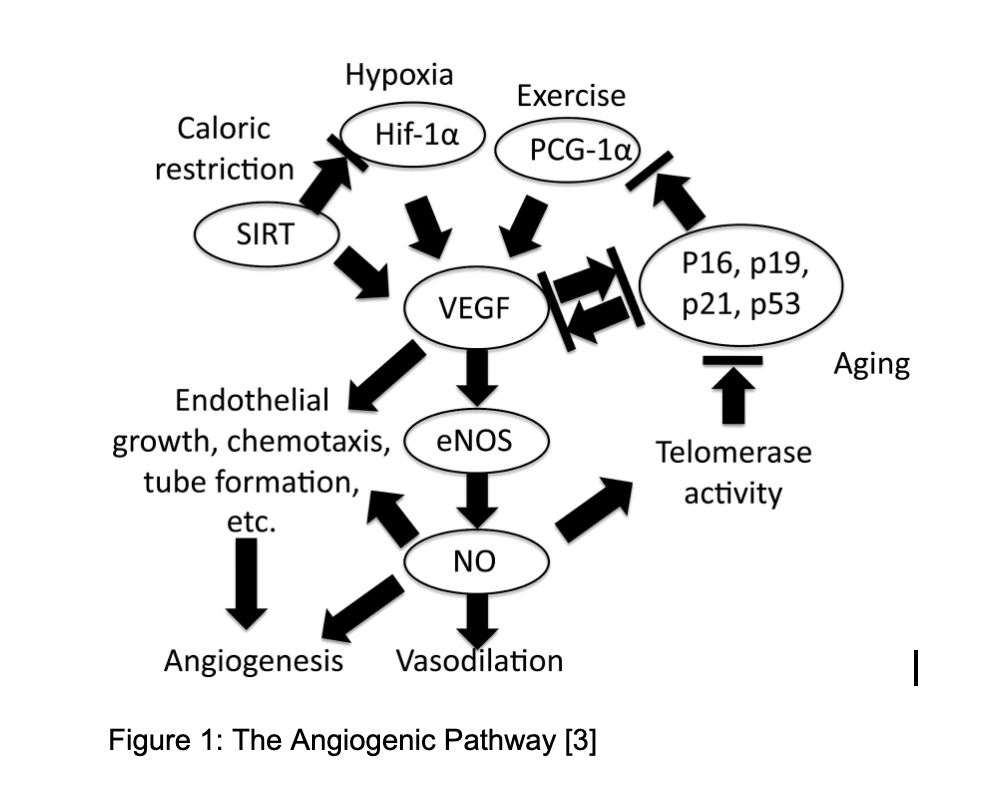
Figure 1: The Angiogenic Pathway of peptides to stimulate blood flow, and thereby influence hair growth
Benefits of BPC 157
- Enhanced tissue repair and regeneration [6]
- Possess anti-inflammatory properties, which may be helpful in reducing inflammation and irritation on the scalp, and potentially promoting hair growth
- Has protective effects on the gastrointestinal tract, promoting healing and reducing inflammation in animal studies [7]
- Possess faster muscle healing properties [8]
Side Effects of BPC 157
BPC 157 so far has not demonstrated any serious side effects during any research studies. Below are the common side effects as seen with most of the peptides:
- Pain, redness, and inflammation at the site of injection (most common)
- Itchiness
- Headache, dizziness, flushing
- Nausea
- Lethargy and drowsiness
- Changes in hunger pattern
Who should use BPC 157?
BPC 157 can be best suited for individuals who suffer from hair loss or scalp inflammation, and who experience hair damage or shedding. Besides hair growth, BPC 157 also accelerates muscle healing, making it beneficial for athletes or individuals recovering from injuries.
Who Should Not Use BPC 157?
Individuals who are pregnant, breastfeeding, or have a history of allergic reactions to any of the ingredients in BPC 157 should avoid using it.
Additionally, those who have a medical condition or are taking medication should seek professional medical advice before using BPC 157 or any other peptide supplement.
Results of BPC-157
“I was taking Integrative Peptides’ BPC-157 with Nattokinase for a month. Then, roughly a month and a half later, I noticed my body hair has gotten much darker/thicker in a number of places.” – Reddit Username BadBarber
“Ive noticed this with integrative BPC, my girlfriend pointed it out, she as right, my chest hair got noticeably thicker, like, a-lot thicker. I feel like my head hair got a little thicker/deeper as well, I’m not balding but it seemed fuller, the color seemed darker.” – Reddit Username Cade_gooftSOB
Conclusion: Best Peptides for Hair Growth
With various peptides showing promising results in promoting hair growth, it’s a great time to try them out and see which works best for you. So say goodbye to bad hair days and hello to luscious locks!
People Also Ask
What is the benefit of peptides for hair?
Peptides aid in repairing the internal structure of hair and boosting the production of cuticles, leading to improved hair growth and increased thickness and flexibility of individual hair strands.
What peptide is good for female hair loss?
GHK-Cu is an effective solution to boost hair growth in women as it combats scalp inflammation, enhances blood circulation to the hair follicles, and neutralizes free radicals that can contribute to excessive hair loss.
Do peptides thicken hair?
Studies demonstrate that peptides tend to improve the size of hair follicles. Due to thick hair follicles, the new grown hair appear thicker.
How often should you use peptides?
Peptides are safe to use twice a day, but should you desire, once a day can make it work.
References
Pickart L, Margolina A. Regenerative and Protective Actions of the GHK-Cu Peptide in the Light of the New Gene Data. Int J Mol Sci. 2018 Jul 7;19(7):1987. doi: 10.3390/ijms19071987. PMID: 29986520; PMCID: PMC6073405. https://www.ncbi.nlm.nih.gov/pmc/articles/PMC6073405/
Fadilah NIM, Rahman MBA, Yusof LM, Mustapha NM, Ahmad H. The Therapeutic Effect and In Vivo Assessment of Palmitoyl-GDPH on the Wound Healing Process. Pharmaceutics. 2021 Feb 1;13(2):193. doi: 10.3390/pharmaceutics13020193. PMID: 33535623; PMCID: PMC7912838. https://www.ncbi.nlm.nih.gov/pmc/articles/PMC7912838/
Ito C, Saitoh Y, Fujita Y, Yamazaki Y, Imamura T, Oka S, Suzuki S. Decapeptide with fibroblast growth factor (FGF)-5 partial sequence inhibits hair growth suppressing activity of FGF-5. J Cell Physiol. 2003 Nov;197(2):272-83. doi: 10.1002/jcp.10369. PMID: 14502567. https://pubmed.ncbi.nlm.nih.gov/14502567/
Philp D, Nguyen M, Scheremeta B, St-Surin S, Villa AM, Orgel A, Kleinman HK, Elkin M. Thymosin beta4 increases hair growth by activation of hair follicle stem cells. FASEB J. 2004 Feb;18(2):385-7. doi: 10.1096/fj.03-0244fje. Epub 2003 Dec 4. PMID: 14657002. https://pubmed.ncbi.nlm.nih.gov/14657002/
Ohn J, Been KW, Kim JY, Kim EJ, Park T, Yoon HJ, Ji JS, Okada-Iwabu M, Iwabu M, Yamauchi T, Kim YK, Seok C, Kwon O, Kim KH, Lee HH, Chung JH. Discovery of a transdermally deliverable pentapeptide for activating AdipoR1 to promote hair growth. EMBO Mol Med. 2021 Oct 7;13(10):e13790. doi: 10.15252/emmm.202013790. Epub 2021 Sep 6. PMID: 34486824; PMCID: PMC8495455. https://www.ncbi.nlm.nih.gov/pmc/articles/PMC8495455/
S Seiwerth, et al. “BPC 157’s effect on healing.” Journal of physiology, Paris vol. 91,3-5 (1997): 173-8. doi:10.1016/s0928-4257(97)89480-6. https://pubmed.ncbi.nlm.nih.gov/9403790/
Seiwerth, Sven et al. “BPC 157 and Standard Angiogenic Growth Factors. Gastrointestinal Tract Healing, Lessons from Tendon, Ligament, Muscle and Bone Healing.” Current pharmaceutical design vol. 24,18 (2018): 1972-1989. doi:10.2174/1381612824666180712110447. https://pubmed.ncbi.nlm.nih.gov/29998800/
Pevec D, Novinscak T, Brcic L, Sipos K, Jukic I, Staresinic M, Mise S, Brcic I, Kolenc D, Klicek R, Banic T, Sever M, Kocijan A, Berkopic L, Radic B, Buljat G, Anic T, Zoricic I, Bojanic I, Seiwerth S, Sikiric P. Impact of pentadecapeptide BPC 157 on muscle healing impaired by systemic corticosteroid application. Med Sci Monit. 2010 Mar;16(3):BR81-88. PMID: 20190676. https://pubmed.ncbi.nlm.nih.gov/20190676/
- 5 Best Peptides for Hair Growth – For Regrowth & Hair Loss - May 19, 2023
- 5 Best Peptides for Muscle Growth – Dosages and Real-Life Results - May 15, 2023
- 5 Best Peptides for Anti Aging & Skin Health - May 9, 2023




